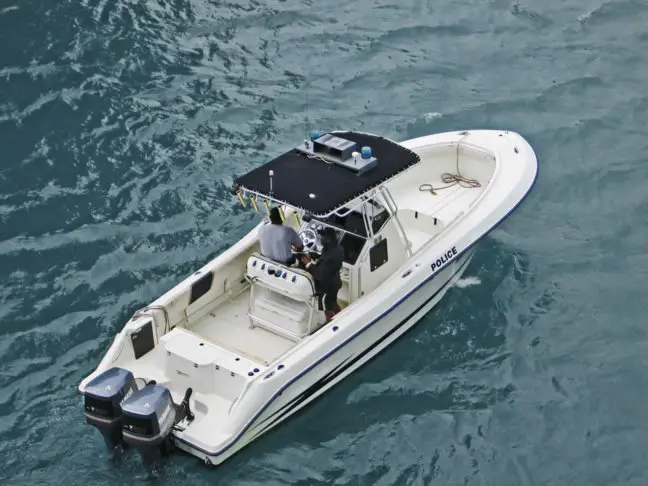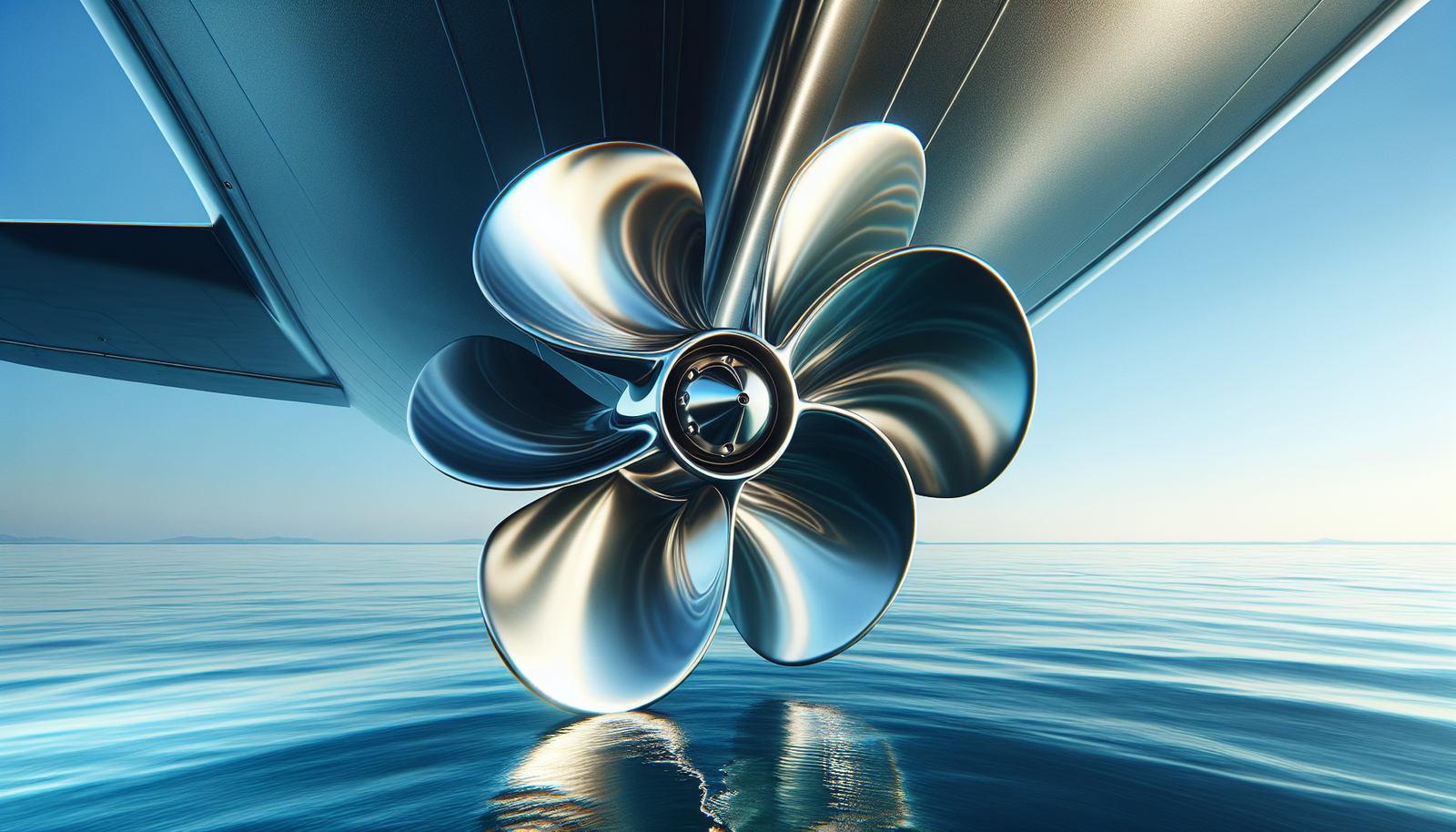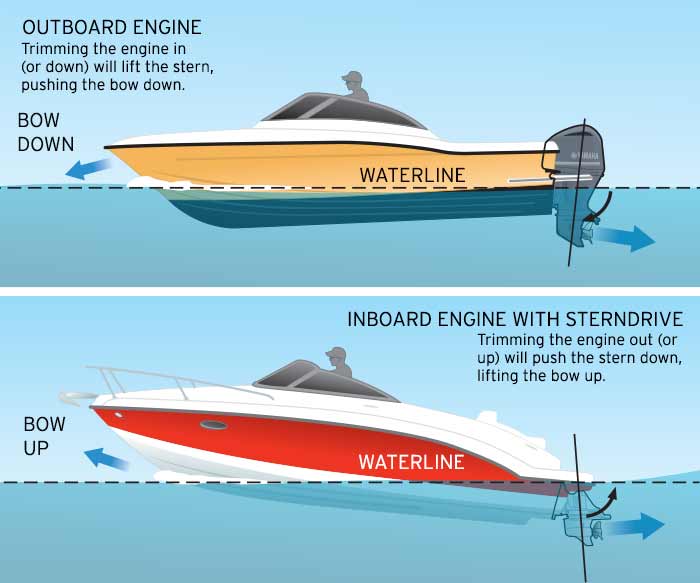Are you considering modifying your boat’s engine? It’s important to understand the legalities surrounding this decision. This article will provide you with the necessary information to navigate the legalities of boat engine modification. From regulations and certifications to potential penalties, we’ll cover everything you need to know. So, before you embark on your engine modification journey, let’s make sure you’re well-informed and on the right side of the law.
Types of Boat Engine Modifications
Engine Power Enhancements
When it comes to enhancing the power of your boat’s engine, there are several modifications you can consider. This may include upgrading the engine components such as the intake manifold, camshaft, pistons, and headers. Additionally, you can install a turbocharger or supercharger to increase the engine’s horsepower. These modifications can significantly improve your boat’s performance, allowing you to sail faster and tackle rough waters with ease.
Fuel System Modifications
Modifying the fuel system of your boat can optimize its efficiency and increase its overall power output. Upgrading your boat’s fuel injectors, fuel pump, and fuel pressure regulator can enhance the fuel delivery, which in turn improves combustion and engine performance. Additionally, installing a larger fuel tank or utilizing a fuel additive can extend your boat’s range, allowing you to explore new horizons without worrying about fuel limitations.
Exhaust System Upgrades
Upgrading the exhaust system of your boat can have several benefits. A modified exhaust system can improve engine performance by reducing backpressure and increasing horsepower. It can also enhance the sound of your boat, creating a deeper and more aggressive tone. However, it is vital to ensure that any exhaust modifications comply with local noise pollution regulations to avoid any unnecessary legal consequences.
Propeller Changes
Changing the propeller on your boat can greatly impact its overall performance. A propeller with different pitch or diameter can increase speed, reduce fuel consumption, or improve acceleration. However, it is crucial to consider the engine specifications, boat weight, and the intended use of your vessel when making propeller modifications. It is also essential to stay within the legal limits set by local regulations.
Cooling System Modifications
Modifying the cooling system of your boat can help maintain optimal engine temperature and prevent overheating. Upgrading the radiator, water pump, or installing additional cooling fans can improve the cooling efficiency, especially in hot climates or during heavy usage. Proper cooling system modifications can prolong the life of your engine and ensure consistent performance, making your boating experience more enjoyable and worry-free.
Legal Regulations and Requirements
Local Laws and Regulations
Understanding and adhering to local laws and regulations is vital before making any modifications to your boat’s engine. Different regions may have specific rules regarding engine power enhancements, fuel system modifications, exhaust system upgrades, and other alterations. It is important to consult local authorities or boating associations to ensure compliance and avoid unnecessary legal consequences.
Federal Laws and Regulations
In addition to local regulations, there are federal laws and regulations that govern boat engine modifications. These regulations ensure the safety and environmental compliance of modified boats. It is crucial to familiarize yourself with federal laws such as the Clean Air Act and the Noise Control Act to ensure that your modifications meet the required standards. Non-compliance can lead to penalties and potentially impoundment of your boat.
Environmental Regulations
Boaters need to consider the environmental impact of their engine modifications. Environmental regulations aim to protect natural habitats, water quality, and minimize pollution. It is essential to comply with emissions standards, noise pollution regulations, and other environmentally-related requirements. By adopting environmentally-friendly modifications, you can enjoy your boating experience while preserving the ecosystems and minimizing your carbon footprint.
Safety Requirements
Safety should always be a top priority when making boat engine modifications. Ensuring that your modifications do not compromise the safety of the vessel or its passengers is crucial. It is vital to follow recommended installation processes, conduct proper engine performance testing, and implement fire safety measures. Compliance with safety requirements ensures a safe boating experience, reducing the risk of accidents and potential legal consequences.

Boat Engine Certification
EPA Certification
The Environmental Protection Agency (EPA) certification is necessary for boat engines that are modified or manufactured to meet specific emission standards. This certification ensures that the modifications or engine models comply with the Clean Air Act, which aims to reduce air pollution. It is essential to verify the EPA certification status when considering engine modifications, as non-compliance can result in legal penalties.
CE Certification
If you plan to navigate in European waters, the CE (Conformité Européene) certification is essential. This certification ensures that your boat and its components, including engine modifications, meet the European Union’s safety and environmental requirements. The CE certification demonstrates that your boat is in compliance with the applicable regulations, allowing for hassle-free navigation within European waters.
US Coast Guard Certification
If you plan to operate your modified boat in commercial activities or carry passengers for hire in the United States, it is crucial to obtain US Coast Guard certification. The US Coast Guard regulates the safety standards for commercial vessels, ensuring compliance with stability, structure, and fire safety requirements. Engine modifications must comply with these regulations to obtain certification and avoid any legal implications.
ISO Certification
ISO certification is widely recognized as a mark of quality and compliance with international standards. While not mandatory for engine modifications, ISO certification can provide assurance of the quality and safety of your modifications. Certified modifications can give you peace of mind knowing that your boat meets the industry’s best practices, providing a safe and reliable boating experience.
Permits and Licensing
Permits for Engine Power Modifications
Some jurisdictions require permits for engine power modifications. These permits are obtained by submitting documentation regarding the proposed modifications, including specifications and compliance with local regulations. The authorities may review and inspect the modifications to ensure they meet safety and environmental standards. It is essential to research and obtain the necessary permits to avoid potential legal consequences.
Permits for Fuel System Modifications
Similar to engine power modifications, certain regions may require permits for fuel system modifications. The permits involve submitting information regarding the modifications and their compliance with local regulations. Authorities may review and inspect the modifications to verify their safety and environmental compliance. Acquiring the necessary permits ensures that your fuel system modifications align with legal requirements, mitigating the risk of fines or penalties.
Permits for Exhaust System Upgrades
Depending on the jurisdiction, permits may be required for exhaust system upgrades. These permits involve submitting documentation outlining the modifications and their compliance with local noise pollution regulations. Authorities may inspect the exhaust system to ensure compliance with the permitted noise levels. Obtaining the required permits for exhaust system upgrades is essential to avoid legal consequences and maintain an enjoyable boating experience.
Permits for Propeller Changes
In some areas, permits may be necessary for propeller changes. These permits typically involve submitting relevant information about the new propeller’s specifications and compliance with local regulations. Authorities may review the propeller modifications to ensure they meet safety requirements and do not exceed any legal restrictions. Obtaining the necessary permits for propeller changes ensures that your modifications comply with local regulations, preventing any potential legal issues.
Permits for Cooling System Modifications
Certain jurisdictions may require permits for cooling system modifications. These permits involve submitting information about the proposed modifications, including compliance with safety and environmental regulations. Authorities may review and inspect the cooling system modifications to ensure they meet the necessary standards. Obtaining the permits for cooling system modifications ensures compliance with local regulations, reducing the risk of legal consequences.
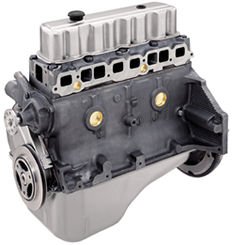
Environmental Considerations
Emissions Standards
Engine modifications can impact the emissions produced by your boat. It is crucial to consider emissions standards set by local and federal regulations when making modifications. Compliance with emissions standards ensures that your boat remains environmentally responsible and minimizes its impact on air quality. Adhering to emissions standards not only avoids legal consequences but also helps protect the environment for future generations of boaters.
Impact on Natural Habitats
Boaters have a responsibility to minimize their impact on natural habitats. Engine modifications can potentially disrupt ecosystems, especially in sensitive areas such as marine reserves or protected habitats. It is important to consider the potential ecological consequences of modifications and ensure compliance with environmental regulations. By being conscious of the impact on natural habitats, you can contribute to the preservation and sustainability of marine ecosystems.
Water Quality Regulations
Modifications to your boat’s engine can have unintended consequences on water quality. Fuel spills, oil leaks, or improper disposal of engine-related waste can lead to pollution and harm aquatic life. As a responsible boater, it is crucial to comply with water quality regulations and take necessary precautions to prevent any harm to the environment. Proper maintenance, regular inspections, and adherence to best practices can help protect water quality and ensure sustainable boating.
Noise Pollution Regulations
Certain engine modifications, particularly exhaust system upgrades, can increase noise levels. Excessive noise can disrupt marine life, disturb other boaters, and violate noise pollution regulations. It is important to ensure that any modifications comply with local noise regulations to avoid penalties and maintain peaceful coexistence with other boaters and marine animals. Consideration for noise pollution regulations contributes to a harmonious boating experience for all.
Safety Precautions
Engine Performance Testing
After any engine modifications, it is crucial to conduct thorough performance testing. This includes verifying the changes made, ensuring the engine operates within safe parameters, and validating its overall performance. Performance testing allows you to identify and address any issues or concerns before taking your modified boat out on the water, ensuring a safe and reliable boating experience.
Proper Installation Processes
Proper installation processes are key to maintaining the safety and performance of your modified engine. It is essential to follow manufacturer guidelines and recommendations for installation. If you are unsure or unfamiliar with the installation procedures, consulting a professional marine mechanic can provide the expertise needed to ensure a correct and safe installation. Proper installation minimizes the risk of accidents, damages, and potential legal consequences.
Fire Safety Measures
Engine modifications can increase the risk of fire hazards if not properly managed. It is crucial to implement appropriate fire safety measures to protect yourself, your passengers, and your boat. This can include installing fire suppression systems, regularly inspecting electrical connections, and ensuring the proper storage and handling of flammable materials. Prioritizing fire safety reduces the likelihood of accidents and potential legal implications.
Exhaust System Safety
Modifications to the exhaust system may increase the temperature and potential risks associated with heat. It is essential to implement proper safety measures to prevent burns or other damages. Heat shields, proper insulation, and regular inspections can minimize the risk of accidents and ensure the safety of occupants on board. By considering exhaust system safety, you can prevent injuries and enjoy a worry-free boating experience.
Maintenance and Inspections
Proper maintenance and regular inspections are vital for ensuring the continued safety and performance of your modified engine. Routine maintenance, including oil changes, filter replacements, and general inspections, can help identify and address any issues before they become major problems. Adhering to recommended maintenance schedules and conducting regular inspections reduce the risk of mechanical failures, accidents, and potential legal consequences.
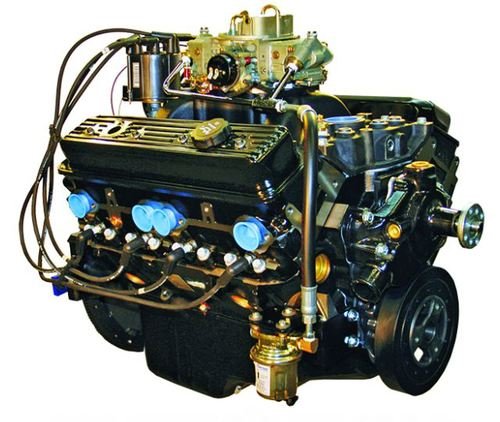
Potential Legal Consequences
Fines and Penalties
Failure to comply with local and federal regulations regarding boat engine modifications can result in fines and penalties. Jurisdictions impose fines to discourage non-compliance and promote responsible boating practices. Fines can vary depending on the severity of the violation and can range from minor infractions to substantial monetary penalties. To avoid fines and penalties, it is crucial to understand and follow the applicable regulations.
Boat Impoundment
Non-compliance with regulations can result in the impoundment of your boat. Authorities may impound your boat for a specified period or until necessary modifications or permits are obtained. Boat impoundment can cause inconvenience, disruption to your boating plans, and additional expenses. It is vital to adhere to the legal requirements to prevent the impoundment of your boat and maintain uninterrupted enjoyment on the water.
Criminal Charges
In extreme cases of non-compliance or serious violations, criminal charges may be filed. Criminal charges can result in legal proceedings, fines, imprisonment, or a combination thereof. It is essential to prioritize compliance with regulations and obtain the necessary permits and certifications to prevent any criminal charges. A responsible approach to boat engine modifications ensures not only your safety but also protects you from potential criminal consequences.
Liability for Accidents
Failure to comply with safety regulations and standards can increase the risk of accidents. If an accident occurs and it is determined that your boat’s modified engine was a contributing factor, you may be held liable for damages, injuries, or loss of life. Liability for accidents can result in significant legal and financial consequences. Prioritizing safety and compliance ensures a safe boating experience and minimizes the risk of liability in the event of an unfortunate accident.
Insurance Considerations
Policy Coverage Limitations
Before making any modifications to your boat’s engine, it is crucial to review your insurance policy. Some insurance companies may have specific coverage limitations for modified engines. It is important to understand the extent of your policy coverage and whether modifications are within the policy’s scope. In some cases, additional coverage or adjustments to your insurance policy may be necessary to ensure adequate protection for your modified engine.
Increased Premiums
Modifications to your boat’s engine can potentially increase your insurance premiums. Insurance companies consider modified engines as an increased risk, which may result in higher premiums. It is important to consult with your insurance agent or company to understand any premium adjustments that may accompany your modifications. Being aware of potential premium increases allows you to budget accordingly and accurately assess the cost of your modified engine.
Exclusions for Modifications
Some insurance policies may include exclusions for certain types of modifications. It is crucial to review your policy’s terms and conditions to determine if any modifications are excluded from coverage. If your modifications fall under any exclusions, it may be necessary to seek additional coverage or consider alternative insurance options that provide the necessary protection. Understanding any modifications exclusions helps ensure that you have adequate coverage for your modified engine.
Declination of Claims
Non-disclosure of modifications or failure to obtain the necessary permits and certifications can result in the declination of insurance claims. It is vital to provide accurate information to your insurance company regarding any modifications made to your boat’s engine. Failure to disclose modifications or non-compliance with legal requirements can give insurance companies grounds to deny claims. Being transparent and adhering to legal requirements helps ensure that your insurance claims are honored when needed.
Professional Consultation
Marine Mechanics
Consulting with a professional marine mechanic is essential when considering boat engine modifications. A knowledgeable mechanic can provide valuable insights, advice, and expertise regarding the feasibility and safety of your intended modifications. Their experience can guide you through the installation process, identify any potential issues, and ensure compliance with regulations. Consultation with a marine mechanic helps ensure that your modifications are performed correctly and with your utmost safety in mind.
Legal Advisors
Navigating the legal aspects of boat engine modifications can be complex. Seeking advice from legal advisors or attorneys specializing in maritime law can ensure you are well-informed and compliant with all relevant regulations. Legal advisors can guide you through the permit acquisition process, help you understand the legal ramifications of modifications, and ensure that you are taking the necessary steps to avoid any potential legal consequences. Their expertise provides peace of mind and helps protect your boating experience.
Insurance Agents
Consulting with your insurance agent is crucial before and after making modifications to your boat’s engine. They can provide guidance on policy coverage, potential premium adjustments, and necessary amendments to accommodate your modifications. Insurance agents can also review policy terms and conditions to ensure that your modified engine is adequately covered. Their expertise helps you navigate the insurance considerations associated with modifications, protecting your investment and providing financial security.
Boating Associations
Boating associations can serve as excellent resources for information, guidance, and support when it comes to boat engine modifications. They often provide resources on regulations, permits, and best practices. Boating associations can connect you with experts and offer access to educational materials and seminars to enhance your knowledge of legalities and safety aspects. Being a part of a boating association fosters a sense of community and helps you stay updated on industry trends and best practices.
Conclusion
Understanding the legalities surrounding boat engine modifications is crucial for all boat owners. It is imperative to be aware of the different types of engine modifications available and the potential legal, environmental, and safety considerations associated with each one. By adhering to local and federal regulations, obtaining the necessary permits and certifications, and consulting with professionals, you can enjoy your modified engine while ensuring a safe and compliant boating experience. Prioritize compliance, safety, and responsible boating practices to navigate the legal landscape with confidence and peace of mind.
